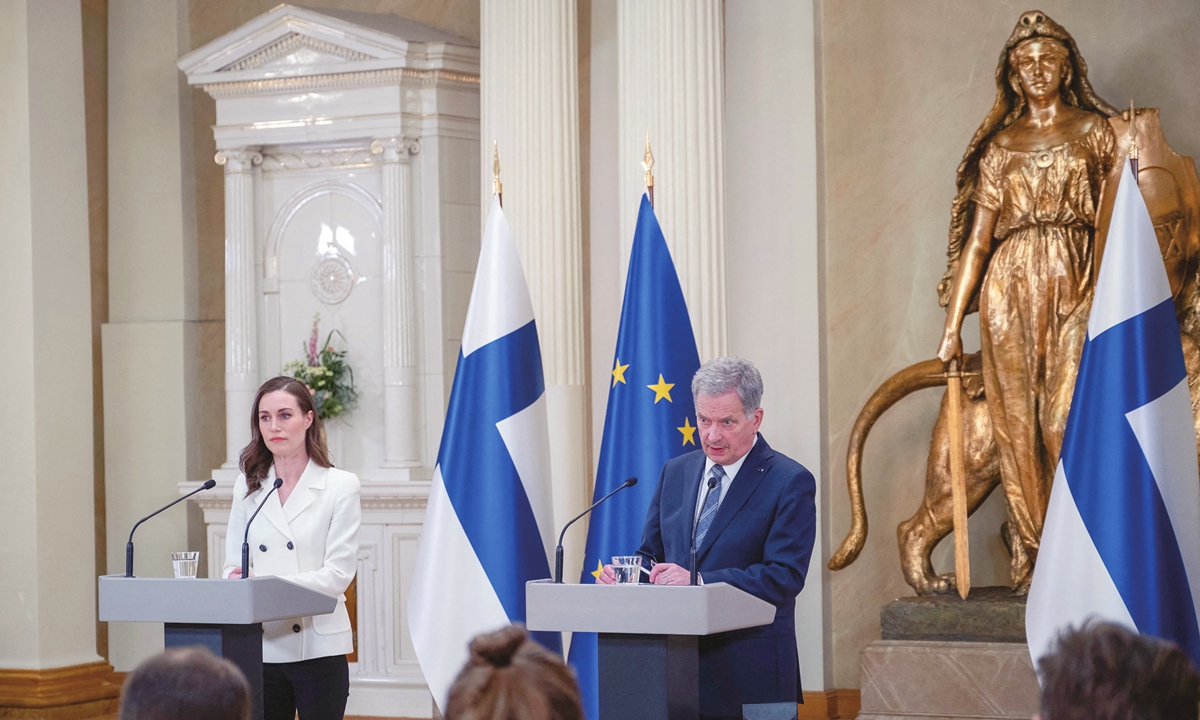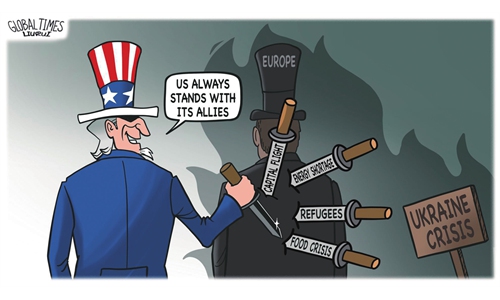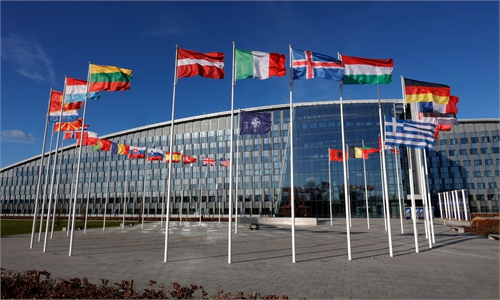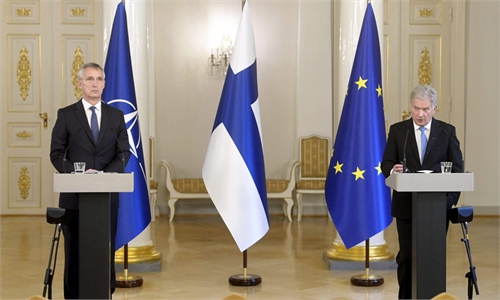NATO expansion with Finland, Sweden’s bid tips balance, adds uncertainty to Europe
Russia, Finland, Sweden could solve their concerns in political ways: experts

Finland's Prime Minister Sanna Marin (left) and Finland's President Sauli Niinisto attend a joint news conference on Finland's security policy decisions at the Presidential Palace in Helsinki, Finland, May 15, 2022. Photo: AFP
NATO expansion continues despite the Russia-Ukraine conflict as the US-led military alliance could include two more European countries, Finland and Sweden, which previously held a military neutrality stance between NATO and Russia. Chinese analysts said that this could add new uncertainty to the security of Europe, but it does not mean there will be new military conflicts in the continent as they believe Russia can solve its concerns with these two countries in political ways, otherwise they will fall into a US trap to further worsen the security situation of Europe.
Finnish President Sauli Niinisto confirmed on Sunday that his country would apply for membership of the NATO military alliance, Reuters reported. Russia, which shares a 1,300-kilometer border with Finland, has said it would be a mistake for Helsinki to join NATO and that it would harm bilateral ties.
Sweden's governing party has backed joining NATO, moving the country closer to applying to join the alliance, media reported Sunday.
Cui Hongjian, director of the Department of European Studies at the China Institute of International Studies, told the Global Times on Sunday that by including Finland and Sweden, the balance between NATO and Russia will be further broken as these two countries have strong economic and military capabilities, and this will surely increase the pressure upon Russia.
The US can deploy missile defense systems and other military equipment in the territories of NATO members, to weaken the nuclear deterrence of Russia and maximize the military advantage against Russia, said analysts, noting that this is the fundamental reason why the tensions between Russia and some other European countries cannot be effectively resolved, and also a reason that causes the ongoing conflict in Ukraine.
"As the Russia-Ukraine conflict remains unsettled, Russia, as well as Finland and Sweden, have no intention to escalate the conflicts to their own soils, so they will pay efforts to solve their concerns in political ways. Finland explained its plan to Russia before it formally announced its decision, and this is at least a signal that Finland's plan is based on defensive demand," Yang Jin, an associate research fellow at the Institute of Russian, Eastern European, and Central Asian Studies under the Chinese Academy of Social Sciences, told the Global Times on Sunday.
Niinisto told Russian President Vladimir Putin by phone about Helsinki's plans to join NATO, Interfax news agency cited Bloomberg as saying on Saturday.
According to TASS, Putin and Niinisto had a "sincere exchange of views over the announced decision by Finland's leadership to apply for NATO membership," the press service of the Kremlin said.
"Putin stressed that rejecting the traditional policy of military neutrality would be wrong since there are no threats to Finland's security. Such a change in the country's foreign policy course could have a negative effect on Russia-Finland relations, which have been built over the course of many years in the spirit of neighborliness and partnership cooperation and have a mutually beneficial nature," the Kremlin noted.
Cui said Russia will not like the decision for sure but Moscow stressed that Russia imposes no threat to its neighbor, so this gives a chance for Russia and Finland, as well as Sweden to wisely solve their concerns by political ways.
"Obtaining NATO membership to respond to the domestic public doesn't necessarily mean they [Finland, Sweden] will serve the US' strategic goal to provoke or attack Russia, so they don't have to solve their concerns by conflict, as long as they can insist on not imposing direct military threats against each other," Cui said.
The current hot spot is still the Russia-Ukraine conflict, and the future of Russia and NATO depends on how the situation in Ukraine develops, Yang said, noting that if Russia can achieve its goals and accomplish its military operations, and realize cease-fire with Ukraine, it would be able to deal with NATO expansion in a new way, otherwise, the security situation of Europe would be extremely uncertain.




